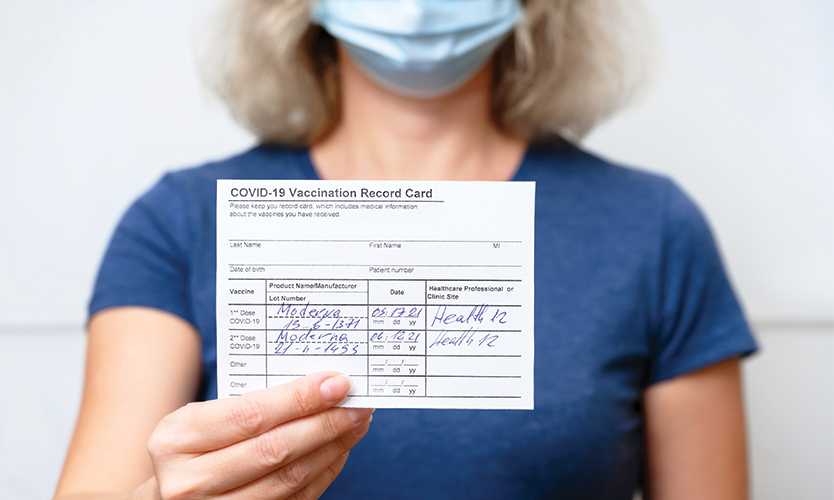Editorial: Pandemic reshaped workplace health
- September 2, 2025
- Posted by: Gavin Souter
- Category: Workers Comp

It has been five years since the deadly COVID-19 virus first emerged in Wuhan, China, shutting down whole continents and upending the way we live and work.
In the period that followed, much has returned to normal — we no longer have to mask up and stand six feet away from the next person in the checkout line. But many things remain changed — work from home is still widespread, and regular handwashing is ingrained.
The pandemic also forced us to consider health precautions that were not top of mind before the outbreak, including vaccines. I, for one, did not give much thought to getting any type of shot prior to COVID-19, but now my upper arm is like a dartboard.
Efforts to encourage and even mandate COVID-19 vaccinations, though, sparked a backlash. Some people were concerned with the speed with which the vaccines were developed, some had concerns over the way they were created, some were, for various reasons, skeptical about vaccines in general, and some just didn’t like being told what to do.
For most people, whether to be vaccinated is a personal decision, but there are some sectors, such as health care, where employers can require workers to get a variety of different shots, including for COVID-19 and influenza. But it’s not as simple as that.
As we report here, health care employees have successfully fought against compulsory vaccinations; in particular, courts have ruled that some employers have not sufficiently provided for religious exemptions, which are required under antidiscrimination laws.
While the suits differ, a typical claim is that fetal cell lines were used in the development of vaccines, which goes against some employees’ religious beliefs. Medical experts acknowledge that historical cell lines that originated from elective abortions performed decades ago were used to test the major vaccines but say that fetal cells are not in the shots themselves. Religious leaders, including the Pope, encouraged people to have the vaccines, but religious belief for many people is a personal thing, and under the law their sincerely held convictions must be accounted for.
This puts health care employers in a difficult spot: They must provide safe environments for vulnerable patients, but they must respect their employees’ rights.
To deal with the situation and to avoid potentially significant liability awards they must put in a robust and consistent exemption process, establish employee education programs that respect employees’ beliefs, offer alternative solutions — such as regular testing and protective equipment — and do everything they can to achieve employee buy-in rather than simply implement mandates from on high.
The COVID-19 pandemic has reshaped our understanding of public health and workplace policies. Organizations must develop adaptive, compassionate strategies that balance scientific evidence with individual beliefs, creating safer, more inclusive environments.



